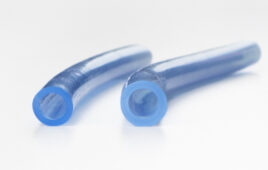
Image by Glenn Carstens-Peters on Unsplash
A product-centric quality management system (QMS) ensures that issues and complaints about medical devices can be documented, researched, and resolved faster. Here are four areas to consider when resolving these issues.
Scott Reedy, Arena Solutions
Today, we are at the forefront of medical technology advancements, set to sustain and improve lives like never before. When a problem occurs with a medical device, its manufacturer must define and implement actions to correct the problem and prevent it from happening again. This is why the FDA requires medical device manufacturers to establish and document corrective and preventive action (CAPA) processes as described in 21 CFR 820.100. The key to streamlining CAPA compliance is managing both quality and product records together in a single system.
Closed-loop CAPA: Addressing the product record
The single system improves visibility and traceability, and speeds resolution with a clear connection to the affected parts of the medical device, as described in 21 CFR 820.100 (5). This product-centric quality management system (QMS) approach ensures that issues and complaints can be documented, researched, and resolved faster. Consider four key areas that are often involved to resolve issues:
Product Design
For any product design changes, an engineering change process is initiated. This process includes creating an engineering change order (ECO) to describe the reason for change, and changes to product design (e.g., specific changes to components). The ECO will list all affected parts of the assembly’s bill of materials.
The CAPA process loop is closed as the ECO approval and related resolution are carried out to change the product design, test, or assembly process.
Training
If an issue is traced to an employee or an external team member who is not following the latest instructions or procedures, better training may be required. Training record management in a QMS helps ensure proper training with testing for competence. The CAPA loop closes when the training record is linked with the product record and training plans. Changes to personnel training can be documented, corrected, and linked via a corrective action request (CAR).
Manufacturing and test documentation
Occasionally, issues can arise from improper documentation for a medical device, such as an assembly instruction. A document change order (DCO) defines any necessary updates to the affected document(s).
The CAPA loop is closed when the specified changes to the affected documents are carried out. With a product-centric QMS approach, all team members can trace the change back to the CAR and original issue.
Purchased product or service issues
Issues may be traced to a purchased component, subassembly, or service. For problems with a purchased part or service, the medical device company may need to source an alternate part and update the approved manufacturers list (AML).
The CAPA loop is closed when the sourced parts are approved and updated in the AML with links between the internal part number and the supplier’s part number.
Connecting to downstream systems
A product-centric QMS system closes the CAPA loop further by connecting seamlessly with downstream systems once changes to product designs are approved.
When a product change is approved and released, operations and other affected teams must be informed, as described in 21 CFR 820.100 (6 and 7). So, product-centric QMS updates the downstream systems used to manufacture the final product, such as enterprise resource planning (ERP). This final step in getting high-quality, safe, and compliant products to market eliminates errors and delays that could otherwise be introduced by doing manual data entry into downstream ERP systems.
Keeping on track
Medical devices are developed to improve or save lives. When quality processes are connected with the product record, inventive products get to market sooner, and in a safer and compliant manner.
Connecting CAPA processes with the product record means including product changes, documenting change processes, training inside and outside personnel, and enabling downstream teams to get issues resolved and products released faster. Using a QMS solution is key, but product-centric QMS approaches are a better way to provide engineering, manufacturing, quality, and supply chain teams with all of the necessary product and quality information.
Scott Reedy is senior director of marketing for Arena Solutions. He spent a decade working in engineering and manufacturing and has held strategic roles with enterprise software companies in consulting, sales, product development and introduction, and marketing over the past 20 years.
The opinions expressed in this blog post are the author’s only and do not necessarily reflect those of Medical Design and Outsourcing or its employees.




